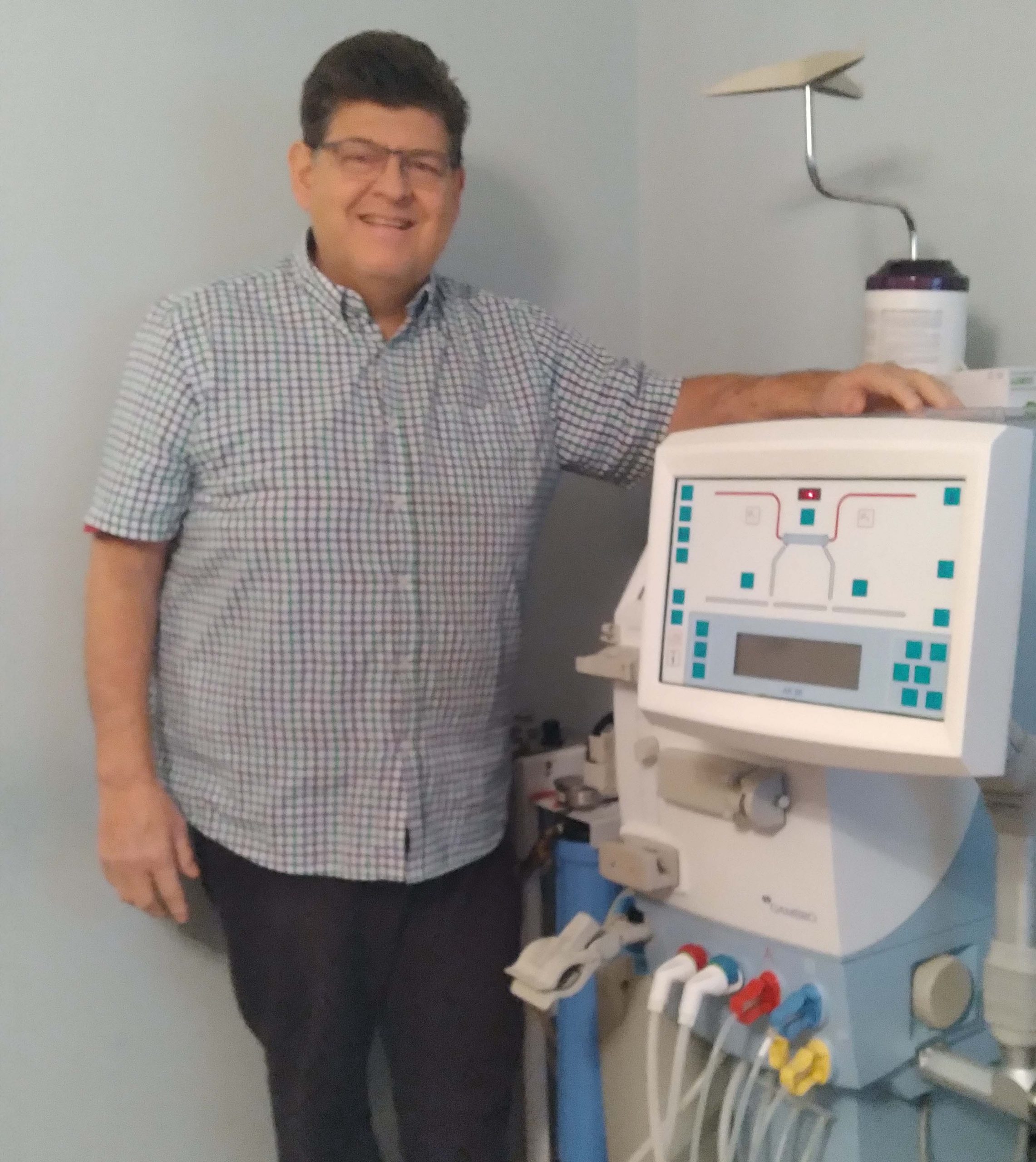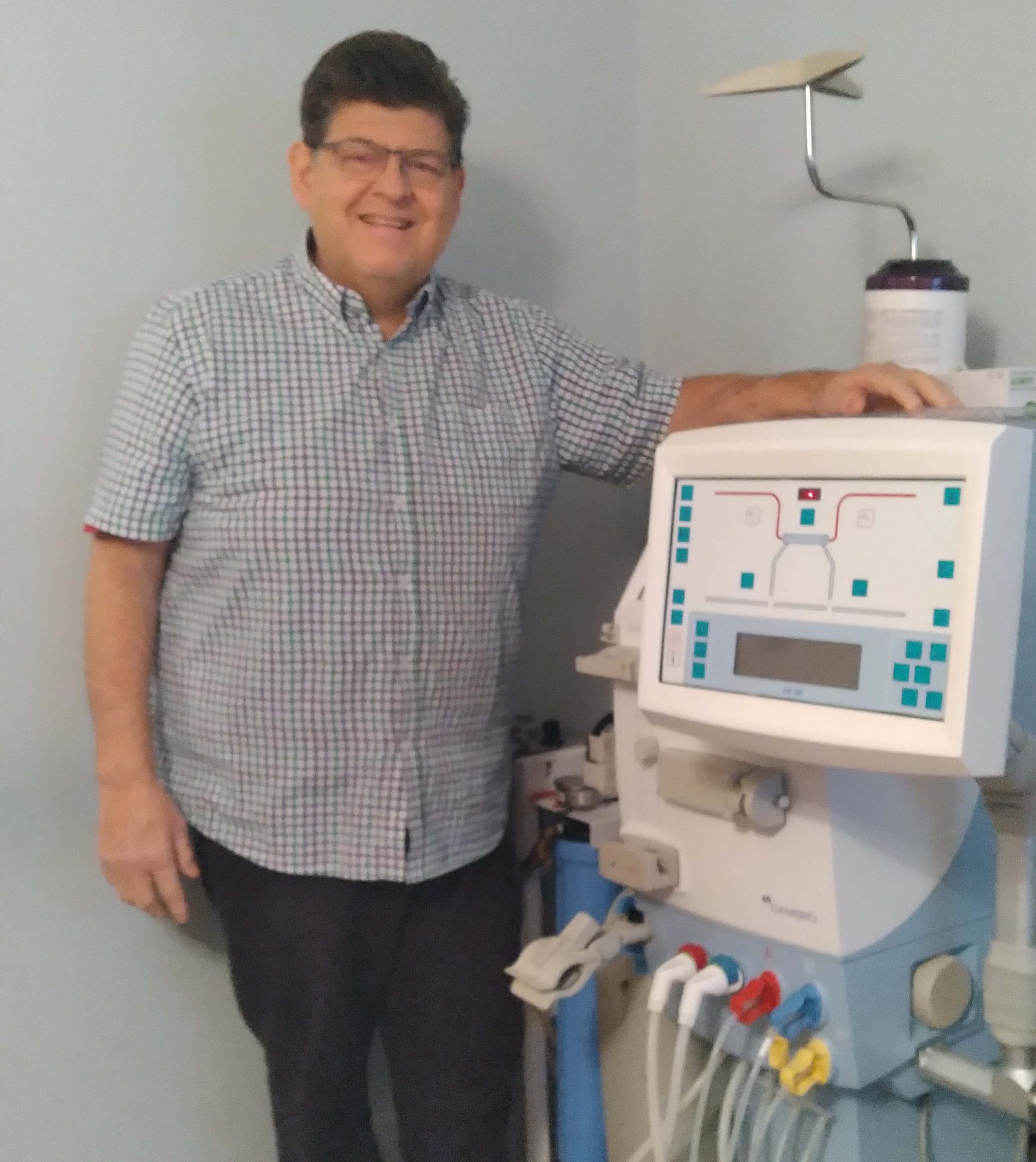 After years of suffering from chronic kidney disease, 61-year-old George Aprile started dialysis treatment at Scarborough Health Network in 2019. Since then, he’s learned how to perform treatments at home with the help of his wife, and like many others, unexpectedly learned how to navigate care with his nephrology team through a global pandemic.
After years of suffering from chronic kidney disease, 61-year-old George Aprile started dialysis treatment at Scarborough Health Network in 2019. Since then, he’s learned how to perform treatments at home with the help of his wife, and like many others, unexpectedly learned how to navigate care with his nephrology team through a global pandemic.
Mr. Aprile shares his personal story of resilience, celebrates his care team, and shares his advice for other patients living with kidney disease.
Editor’s Note: This interview has been edited for length and clarity.
Tell me about your story – how did you end up at SHN?
I’ve had a chronic kidney problem for as long as I can remember. For at least 10 to 15 years, my kidneys have not been removing the waste and excess fluid from my body properly.
Every three months, I needed to see the nephrologist. By October 2019, it was getting worse and I wasn’t feeling so hot. The doctors suggested that I begin dialysis treatment, which usually happens once you lose about 85 to 90 per cent of regular kidney function. I was a little terrified because, number one: I didn’t know what dialysis was, and number two: I was just scared.
By January, I saw the nephrologist again and she said it was time to start dialysis. At this time, I was getting winded just walking upstairs; I could barely walk. My legs were at least twice the thickness past my knees because of the water I was retaining.
In early February, the dialysis clinic called and let me know we’d be starting dialysis on a Tuesday. I was feeling so bad, that I just said, “Okay, sure. See you Tuesday morning.”
For those who don’t know, dialysis treatments replace the work of your own kidneys using a special filter called a dialyzer. Your blood travels through plastic tubing to the dialyzer, where it is cleaned and then returned to you.
You usually have a choice between going to the hospital to be hooked up to the dialysis machine for four hours, a few days a week, and home dialysis. Which did you choose and what was it like?
I picked home hemodialysis.
So, I went to the hospital and they trained me to do it on my own, right from day one. You also need someone to help you for home dialysis, so my wife came in periodically to be trained.
After my first treatment, I started doing dialysis every other day, and about a week or week and half later, I was thinking that if I knew I’d be feeling this much better, I would have started back in October, if not earlier. It was a world of a difference.
In June, I finally started doing my treatment at home. Things have worked out great.
Why was it important to you to be on home dialysis?
Being on home dialysis is empowering; I have more independence and flexibility. From April to June, I was finally doing everything myself: setting up the machine, putting the needles in my arms – the whole nine yards.
From a pandemic perspective, being on home dialysis was beneficial. Knowing kidney patients are at a higher risk for developing serious illness if they contract COVID-19, really made me appreciate the fact that I could be treating myself from home. It wasn’t something I really planned; it just happened that way.
What was it like training for home dialysis during the pandemic, and did you notice any changes along the way?
I was actually in the hospital during the beginning of the pandemic, from February to June. During that time, I noticed small changes in what we were required to wear, like masks. When we had clinics, the doctor would come and see me while I was on the dialysis unit.
But it was in June, when I came home, that I noticed more change; whenever we’d have clinics, it was always over the phone.
Virtual care was a bit challenging because we never did a face-to-face clinic with the doctor. Every three months, I would get a nurse assigned to me and we’d go through some questions. They would talk to the doctor and let me know about any changes to treatment. If I needed any extra supplies, I would come to the hospital and my nurse would hand it to me through the window of my car.
What is the most important quality of care for you as a patient?
In my opinion, you really have to be able to trust what the care team is saying and doing. As well, care and empathy, especially at the beginning. I was terrified and didn’t know what it was.
But this whole process, including my pandemic concerns, were made easier through my care team at SHN.
Heading into my first treatment, I was nervous. But everyone in the nephrology department was accommodating. I didn’t know a lot about dialysis at the time, and I had a lot of questions. But you could ask anyone anything, and if they didn’t have the answer, they would go find it for you.
Everyone went out of their way to help me. For instance, at one point I had a bad gout attack in my leg and could barely walk. I used to get a wheelchair and they’d bring me up. The receptionist herself would even wheel me down to my car – which was amazing. They all, as a team, were just fantastic! You could ask anyone anything, and if they didn’t have the answer, they would go find it for you.
It was all top-notch care. The whole team – they are a team – and that is the great thing about it. You’re never in contact with just one person. You get to know all of them.

